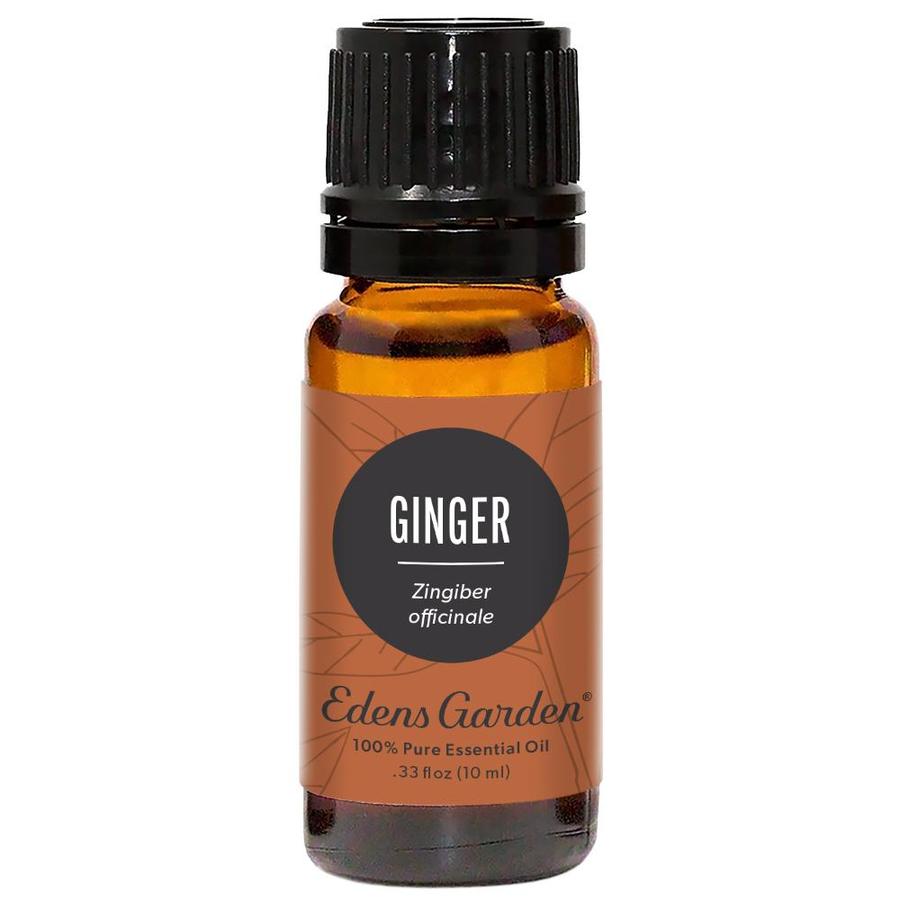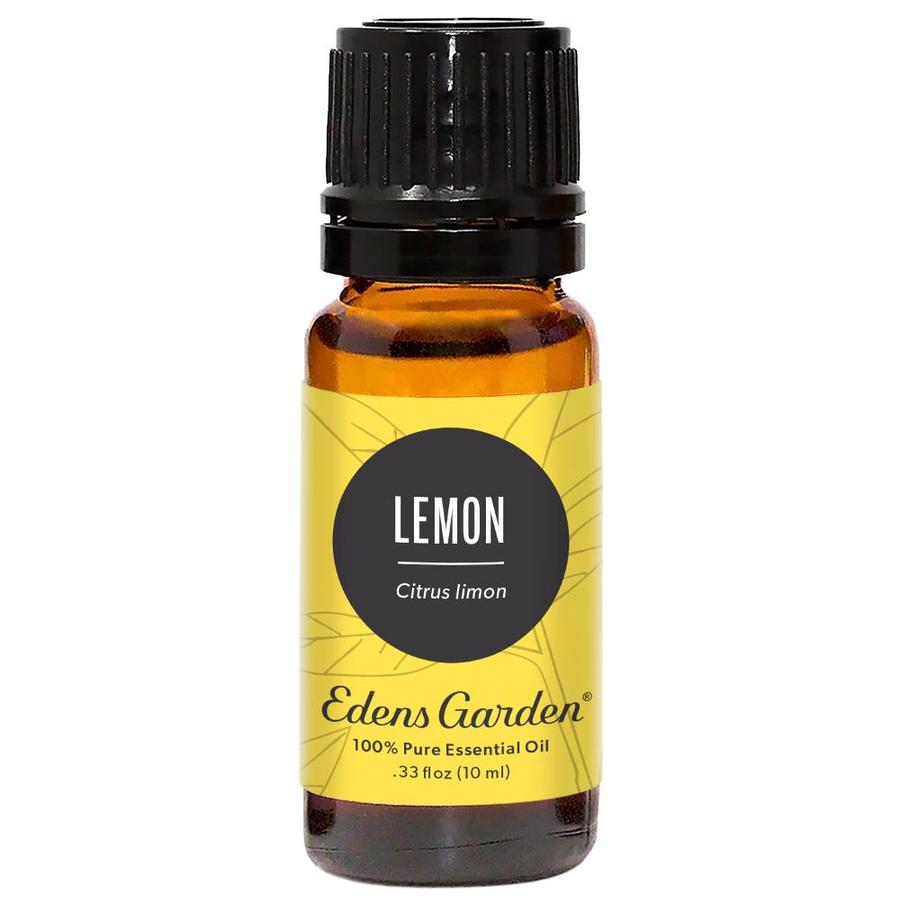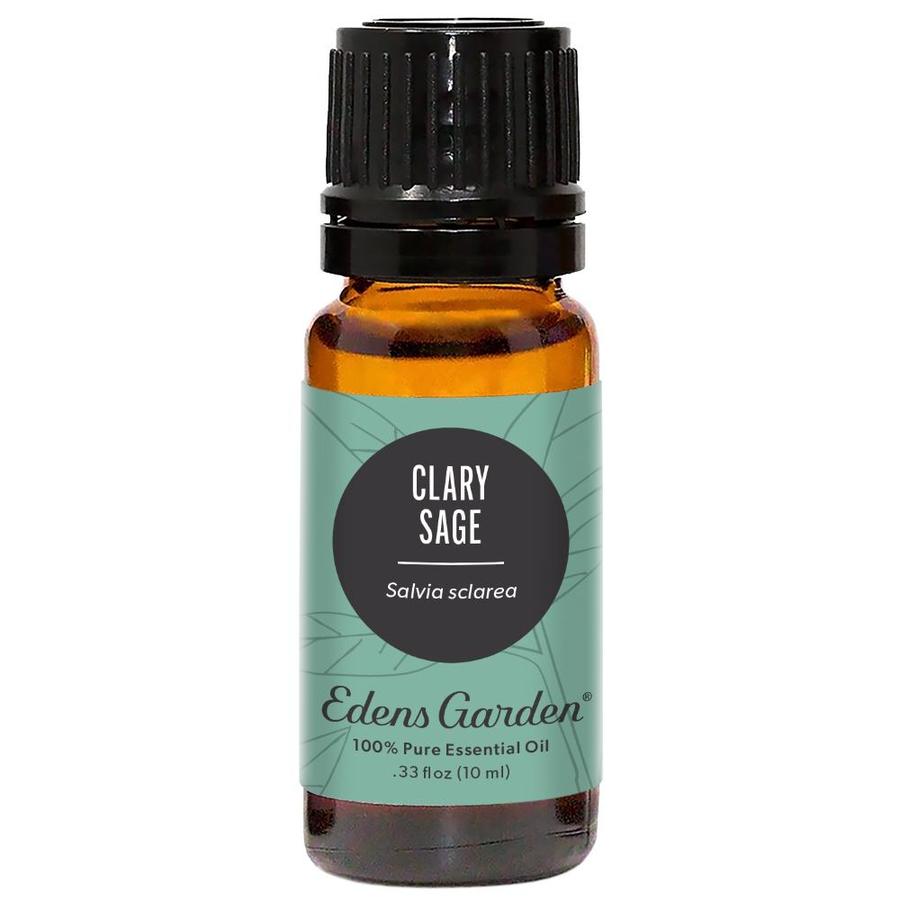Best Essential Oils Blends For Vertigo Relief

Sometimes, you’re just going about your business doing the dishes when the room starts spinning. You begin to feel dizzy, disoriented and even nauseous.
When vertigo strikes, it’s not just disorienting—it’s also frightening.
Vertigo can have a wide variety of root causes. from having a sore throat to getting a sinus infection. However, whether due to inner ear structure or other factors, such as stress of the vagus nerve or nasal congestion, some people are just prone to vertigo.
But there is a way to find relief to the lightheadedness and dizziness. Essential oils can help you deal with vertigo, tinnitus, dizziness and motion sickness, as well as the nausea and headaches that often accompany these unpleasant events.
Types of essential oil blends for vertigo relief & how to use them
In this short guide, we’ll go over 5 essential oil allies that can help vertigo sufferers reduce and relieve episodes of dizziness.
1. Ginger
From candies to tea, ginger root is one of the best known ingredients for treating nausea and upset stomachs.
Ginger is also a traditional remedy for vertigo—commercial fishermen throughout the world have long chewed ginger root to prevent feelings of sea sickness.
Several studies have specifically investigated the use of powdered ginger to help with vertigo and motion sickness.
-
In 1986, researchers found that ginger root helped to prevent vertigo after the stimulation of the vestibular system.
-
A 1988 study by some of the same researchers found that ginger root could reduce symptoms of seasickness including nausea and vomiting.
But you don’t need to keep ginger root on hand to experience the plant’s beneficial effects!
Ginger essential oil concentrates ginger’s powerful compounds in an easy-to-carry bottle, which can make it an ideal ally for people with vertigo.
Use it as follows:
-
If your vertigo tends to strike when you’re on a road trip, place Ginger oil in a car diffuser as a preventative measure.
-
Carry a personal pocket inhaler with 5-15 drops of Ginger essential oil in it. Open it up and inhale whenever vertigo symptoms strike.
2. Lemon
Bright, zesty Lemon is another one of our favorite essential oils for dizziness. It’s also a traditional remedy for nausea. For centuries, people have tried drinking lemon water, lemonade and sniffing lemon peels to soothe upset stomachs.
Recent studies have looked at Lemon essential oil aromatherapy as a potential method for treating nausea related to pregnancy and chemotherapy.
-
A study on pregnancy-related nausea indicated that Lemon oil can help prevent nausea
-
Subjects experienced fewer symptoms after 3-4 days of consistent aromatherapy
These effects make Lemon one of the best essential oils for motion sickness (especially when nausea is a symptom).
For best results, diffuse Lemon in your living space on a daily basis or add it to your homemade bathroom cleaner to enjoy its effects throughout your home.
3. Cypress
Another thing that can affect your inner ear? Sinus pressure. Because your ears, nose and throat are all closely connected via the sinus pathways, sinus congestion can affect your vestibular system and raise the risk of experiencing vertigo.
The essential oil to use in this case is Cypress oil. This oil possesses:
-
Anti-inflammatory properties that can help ease congestion
-
A crisp, woody aroma that can help inspire confidence and clear the mind
To get a dose of Cypress oil goodness, try out adding a steam to your routine whenever you’re feeling congested.
To steam:
-
Fill a heat-proof bowl ⅓ full with steaming water
-
Add a few drops of Cypress essential oil
-
Close your eyes and lean over the bowl, covering your head with a towel to trap steam
-
Inhale deeply
-
Continue steaming for 5-10 minutes, taking breaks from the steam as needed
4. Clary Sage
Clary Sage essential oil is another one of our favorite oils for decongestion. Like Cypress, Clary Sage oil can help to clear phlegm from the throat, nose and sinuses.
Strongly anti-inflammatory, Clary Sage’s effect on your system may also soothe inflammation that extends to the ear canal.
Clary Sage has a bright, herbaceous and tea-like aroma that makes it a popular ingredient in women’s perfumes. In addition to its mucus-clearing properties, Clary Sage is used in aromatherapy to:
-
Soothe stress and anxiety
-
Support healthy sleep
-
Improve mood and promote positivity
Because nerves and poor sleep can contribute to vertigo, Clary Sage can also support your holistic health in ways that may help you stay physically and emotionally balanced.
Try adding Clary Sage to a car diffuser or an essential oil diffuser before bed. Now you know what the best essential oils for vertigo are, but do you know the causes of vertigo?
5. Frankincense
Our Frankincense essential oil carries a highly concentrated and complex level of healing properties such as:
- Anti-inflammatory benefits
- Grounding benefits
- Immune-boosting benefits
- Relieving therapeutic benefits
Its aroma possesses a distinct versatility with earthy, resinous, and soft cloud-like notes which exude a calming smell to melt your nerves. The anti-inflammatory properties of Frankincense can help to relieve middle ear infections, sleep disorders, and other symptoms of vertigo.
For proper usage and effectiveness:
- Use steam distillation methods
- Massage a small amount into the nape of your neck or head
- Use a cotton ball or swab to swipe around your ears
What Causes Vertigo & Dizziness?
Whether essential oils will help with your vertigo and dizziness depends on the root cause.
It’s important to understand the difference between vertigo, dizziness and motion sickness so that you can seek appropriate relief.
-
Dizziness is a feeling of being faint or woozy. It can be caused by motion (spinning in circles, for example) or it can occur unexpectedly when there's not sufficient amounts of blood flow going to your brain.
-
When dizziness is accompanied by the sensation that your surroundings are spinning or that you are spinning, it is called vertigo.
-
Motion sickness is a collection of unpleasant symptoms that arise while traveling (often by car, train, or boat). Vertigo is just one symptom of motion sickness. Nausea is another.
These three phenomena are closely related. However, while motion sickness has a clear root cause—motion—the source of your vertigo may be harder to pin down.
Beyond travel and motion, there are two main causes of vertigo and dizziness: interruptions to your body’s homeostasis and interruptions to the vestibular system.
Vertigo & Homeostasis
Have you ever felt dizzy on New Year’s Day? After one too many glasses of champagne, you’re likely to experience symptoms like nausea, headache and vertigo. Why? As your body works overtime to eliminate the toxins produced by alcohol consumption, your blood pressure drops. You experience dehydration.
Overall, your body has fewer resources available to help you find balance and tolerate motion.
Anything that interrupts your body’s homeostasis, or balanced state, can cause vertigo. Possible culprits include:
-
Lack of sleep – Sleep deprivation has a huge impact on your overall health, including your ability to quickly find your balance. Try diffusing Good Night synergy blend to help promote a calm and restful sleep.
-
Dehydration – When you’re dehydrated, you may not get sufficient oxygen flow to your brain. This, in turn, affects your balance.
-
Stress – Like lack of sleep, dehydration and stress take a toll on your body as a whole, making it harder to adjust to motion. This is why we created the Stress Relief synergy blend to help soothe your troubled mind and promote steady thinking.
-
Severe headaches – Headaches can be a symptom of vertigo, but they can also be a cause.
If you frequently experience vertigo, lifestyle changes may help. Essential oils can also aid your mission to reduce stress, get more sleep and experience fewer headaches and vertigo symptoms.
The Vestibular System & Vertigo
In some cases, vertigo and dizziness are more directly linked to your inner ear and its health.
The vestibular system is the inner-ear system that helps you maintain your balance. It includes small organs that help your body detect acceleration, tilting and other changes to your field of motion.
When this system is disrupted, it can make it difficult to find your balance. As your brain seeks to compensate for changes to the inner ear structure, it produces the feeling (and image) that the room is spinning.
The following can disrupt your vestibular system:
-
Changing air pressure – You know how your ears pop as you drive up hills and mountains? Pressure changes can affect the organs of the inner ear. As they adjust, you’ll feel off-balance.
-
Inner ear infection – In some cases, viral or bacterial infections may cause inflammation of the inner ear and consequent vertigo. Meniere’s disease is one such infection. In general, infections of the inner ear are called labyrinthitis.
-
Vestibular neuritis – The vestibular nerve travels from the inner ear to the brain, sending signals that help your brain understand its surroundings and keep you balanced. Vestibular neuritis is the inflammation of this nerve, which can affect its healthy signaling.
If you have any inner ear pain, consult with your doctor. Infections may require medication.
Managing Vertigo
If you have chronic vertigo, it’s worth consulting a physician. There may be an underlying issue. Furthermore, it’s possible to receive physical therapy to strengthen the vestibular system.
You should also seek help if any of the following symptoms arise alongside dizziness:
-
Sudden onset of a headache
-
Chest pain
-
Fainting
-
Numbness in your arms or legs
-
Vomiting
Any of these may be a sign of a stroke or serious medical condition rather than a mere bout of vertigo.
If you’ve had your symptoms checked out and know that your vertigo is simply a nuisance, there’s good news—essential oils for vertigo may help!
Risks of using essential oil blends for vertigo
As mentioned, we recommend essential oils be used as a diluted solution to avoid experiencing irritation, inflammation, or pain on your skin. It is best practice to follow the instructions labeled by the manufacturer to decrease the risk of using essential oils. Most importantly, please avoid consuming and ingesting essential oils at all costs to prevent toxic poisoning into your body.
Find Your Balance With Essential Oils
In the busy modern world, it can be difficult to keep your balance—literally and figuratively! At Edens Garden, we’re experts in the natural plant extracts that can help you find more grace in your daily life.
Whether your health goal is defeating dizziness, finding more calm or treating dry and aging skin, essential oils have the potential to help. Our oils are derived from indigenous plants and third-party tested to ensure that they’re natural, potent and pure. That means you’ll never have to worry about harmful chemicals or pesticides.
Need some help to find your footing? Start soothing your body and mind with essential oils’ alluring aromas.
Sources:
- Carper, Jean. “How Ginger Fights Vertigo.” The Washington Post. https://www.washingtonpost.com/archive/lifestyle/wellness/1989/02/28/how-ginger-fights-vertigo/be74a8d3-238c-49f5-b0d1-53b3981deb11/
- Grøntved, Aksel et al. “Vertigo-Reducing Effect of Ginger Root.” Otorhinolaryngology 48.5 (1986). https://www.karger.com/Article/Abstract/275883
- Grøntved, Aksel et al. “Ginger Root Against Seasickness: A Controlled Trial on the Open Sea.” Acta Oto-Laryngologica 105.2 (1988. https://www.tandfonline.com/doi/abs/10.3109/00016488809119444
- Yavari Kia, Parisa et al. “The effect of lemon inhalation aromatherapy on nausea and vomiting of pregnancy: a double-blinded, randomized, controlled clinical trial.” Iranian Red Crescent medical journal 16.3 (2014). https://www.ncbi.nlm.nih.gov/pmc/articles/PMC4005434/
- “Dizziness.” The Mayo Clinic. https://www.mayoclinic.org/diseases-conditions/dizziness/symptoms-causes/syc-20371787
- “Meniere’s Disease.” The Mayo Clinic. https://www.mayoclinic.org/diseases-conditions/menieres-disease/symptoms-causes/syc-20374910
Grab The Essentials Here:
Leave a comment (Comments will be approved before showing up)
2 comments
Colleen
What is a rub with lemon peppermint ginger do make for vertigo. Can I mix in magnesium











Edens Garden
July 6, 2021 at 11:39 am
Hi Colleen! You can make a rub using this recipe, but replace the oils in this recipe with Lemon, Peppermint and Ginger. This recipe also includes magnesium: https://www.edensgarden.com/blogs/news/ultra-calming-magnesium-body-butter-diy